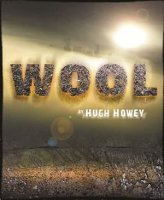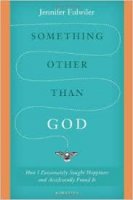I've been silent too long, so here's a quick bit of common sense from a policeman who wrote to Free-Range Kids about common sense parenting: A Cop Weighs in on When to Call 911.
Being a street cop for 22 years, I have witnessed America’s slide from self-reliance to dependence in incremental steps. The invention of 911 has been a good thing and undoubtedly has saved many lives, prevented crimes, and has aided us in apprehending dangerous people. It has also revealed an embarrassing lack of critical thinking and common sense among some who call the police for everything.
...
Parents are afraid. Along with the daily media reminder their kids might die tortuous deaths, they also worry they might end up in jail if they allow their kids to walk to school alone. All of this can be solved by applying good, old-fashioned common sense and a balanced approach to safety.
The writer also teaches child safety programs. I haven't more than glanced at his Child Safety Fun blog, but you can check it out here if you're interested.
I teach them that most strangers are great people who are very helpful, but give them a few techniques to bolster their confidence and give their minds a rest knowing they will probably never need their skills, but if they find themselves in a jam, they know what to do.
Permalink | Read 2457 times | Comments (0)
Category Children & Family Issues: [first] [previous] [next] [newest]
This Rochester Review letters page cheered us both considerably tonight. Mike Armstrong, brilliant computer guru at the University of Rochester Computing Center in our day, confesses to being overwhelmed by today's computing power. His letter ("Something Doesn't Compute" in about the middle of the page) is worth reading as a peek into the field's ancient history; we joined the game in the days of the IBM 360/65. But it was to the final paragraph that we could relate best:
But those were, to me, the good old days of wooden computers and iron programmers. When I left the Computing Center in 1980, I felt I knew the room-sized computer systems thoroughly, from the hardware to the operating systems and most of the application programs. Now I carry a small computer in my pocket that has more memory and more computing power than all of NASA’s computers when they put Neal [sic] Armstrong on the moon, and I have no idea how it works. And it also makes phone calls.
Permalink | Read 2137 times | Comments (1)
Category Random Musings: [first] [previous] [next] [newest]
 Wool by Hugh Howey (2012)
Wool by Hugh Howey (2012)
Despite being a die-hard science fiction fan in my younger days, I rarely venture into the genre now. But I found my sister-in-law's description of Wool intriguing enough to request it from our library. And it is an intriguing story. Or, rather, set of stories, as this was an omnibus collection of Wool, Wool 2, Wool 3, Wool 4, and Wool 5. The 532 pages slipped by quickly, though I was surprised at how dissatisfied I was. The premise is good, the characters interesting, the plot twists satisfying, and as far as I can tell the author writes well. The ending did not disappoint. So why the dissatisfaction?
Perhaps because it was just a bit too gritty for me. I enjoyed the first book most, and thought that perhaps our oldest grandchild might like it. But it seems as if the author's critics told him after each book that he needed more profanity, gore, and action scenes. True, it all fits into the story, but made it much less pleasant to read. (Though it did remind me of one reason I prefer books to movies—it's a lot easier to skim through the fighting.)
My dislike of violence and profanity does not mean I like insipid books. I've read plenty of squeaky-clean books that left me feeling as dissatisfied as Wool. I prefer a book, like The Lord of the Rings (NOT the movie) where the paragraphs are a delight to read and the complexity and depth stand up to multiple re-readings.
I believe my dissatisfaction came because my strongest and most important criterion for enjoyment of a book, play, movie, or television show is whether or not the experience leaves me wanting to be a better person. It doesn't have to be super-spiritual, but I want to be inspired to be kinder, to be more clever, to make our home more inviting, or even just to run a little faster—but to be better in some way. Wool left me feeling that I had read an interesting tale, but nothing more.
The ending cleverly left room for many more books in the same setting, and there are at least four more available, though not at our library. If, someday, the library chooses to add them, and if I'm in the mood for something merely relaxing, I may return to the story: there are a few characters I'd like to follow further....
Not to mention a great lesson about cotton, and a potential field trip for some New Hampshire homeschoolers we know! Check out the Occasional CEO's article this morning.
 Something Other Than God: How I Passionately Sought Happiness and Accidentally Found It by Jennifer Fulwiler (Ignatius, 2014)
Something Other Than God: How I Passionately Sought Happiness and Accidentally Found It by Jennifer Fulwiler (Ignatius, 2014)
I've been a fan of Jennifer Fulwiler's Conversion Diary blog since it was called Et tu?, which takes me back at least as far as 2008. Granted, like Free-Range Kids and the Front Porch Republic, it has gotten short shrift in the last year or so simply because I like it so much: not only was I spending a lot of time reading (which I could have managed) but it too often inspired me to spend much more time writing (which I couldn't). I long to get back to these excellent blogs again, but only after I've acquired more control over responsibilities closer to home.
Be that as it may, when I discovered that our library now has copies of Something Other Than God, I grabbed it, all other responsibilities notwithstanding. Having followed the conception, gestation, long-and-agonizing labor, and finally birth of this book, how could I not? Okay, a real fan would have bought a copy, rather than waiting for the library, but if possible I like to know what I think of a book before I spend money on it.
This one is well worth spending money on, if you can't borrow a copy. (Heather, the Concord library has it.) Jen writes really well, even without an editor, and if I can perhaps detect a little heavy-handedness on the part of that editor ("you need more adjectives"), I can still say with assurance that the agonizing re-re-re-writing process resulted in a well-told, powerful, and entertaining story. My current Kindle-read was set aside once I opened the book, and I finished it two days later—it would have been sooner had I not had some discipline to avoid seriously compromising my other responsibilities. It's a compelling story, serious and funny, and seriously fun to read.
Something Other Than God takes its title from C.S. Lewis, who wrote: All that we call human history ... [is] the long, terrible story of man trying to find something other than God which will make him happy. Jen's journey from fire-breathing atheist to devout Catholic is not only for people who appreciate conversion stories; even those who are certain the pilgrimage took her and her husband in the wrong direction can appreciate the humor and the sheer humanness of the story.
The back-cover endorsement written by Gretchen Rubin (author of The Happiness Project) says it well: Thought-provoking, honest, and often hilarious. It will strike a chord with anyone who ever posed—or tried unsuccessfully to avoid—the big questions of life.
But those who are familiar with Jen's blog will be disappointed to learn that there is no scorpion story. Not one.
I'm not a big fan of going to the dentist, but yesterday's visit paid an unexpected benefit: the hygienist, a former neighbor of ours, shared this video with me.
Heather, this is especially for you, but I think Janet will appreciate it as well, despite her memories being less happy than yours. I enjoyed it a lot despite my own mixed feelings. There are plenty of good memories for Porter as well. :)
This video is just the trailer for a documentary project promoting music education, Marching Beyond Halftime. As such, it has relevance to many outside of our immediate family. Enjoy!
I haven't written much on the Common Core school standards mess (just this), but since Florida give us the opportunity to take sample tests, I couldn't resist checking out what was expected of third graders in mathematics. I was a math major in college and usually enjoy taking standardized tests, so it should have been a piece of cookie, as we say in our family in honor of one of Heather's college math instructors, who was, Ziva-like, idiom-challenged in English.
I'm strongly in favor of holding students, teachers, and schools accountable for what is learned in school. What's more, I have always had little sympathy for those who whine about the standardized testing that comes with a welcome concern for such accountability. For endless years schools have failed to work with parents, to open their doors and records to parents, and to provide parents any reasonable assurance that the massive amount of their children's time spent at school is not being wasted. They brought it all on themselves with their high-handed, "we know best, you just have to trust us" attitude.
And to those who complain that too much time is being wasted in school with teaching to and practicing for the tests, I always say the fault is not in the test, but in teaching to it and practicing for it. Any generalized testing system worth its salt should be able to count on the fact that test results are a representative sample of a student's knowledge; teaching to the sample undermines its reliability.
All that said, this is a test that requires practice, and specific, test-related teaching. First, doing math by mouse clicks instead of paper and pencil is a non-trivial exercise. In this I was aided by my hours of Khan Academy math work. But certainly students need time and practice to learn the specific testing interface.
Second, and most important, even with a bachelor's degree in math I found questions that made me stare blankly at the screen. I don't just mean i didn't know the answer: I hadn't a clue how to begin answering the question. (More)


